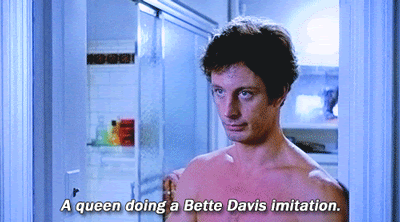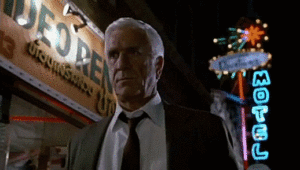The Boys in the Band (1970)

…………………………………………………
The Boys in the Band Movie Review
The Boys in the Band is a 1970 drama film directed by William Friedkin and starring Kenneth Nelson and Leonard Frey. It’s one of the most underrated movies from the seventies.
………………………………………………….
“Show me a happy homosexual
and I’ll show you a gay corpse“
…………………………………………………..
…………………………………………………..
A group of gay men attend a birthday party devoted to one of their more outlandish personas. Everything goes south when a closeted man joins the party and when a dangerous game is introduced. There is a whole lot to talk about when analyzing this movie, but let’s first get the obvious out of the way. The film nowadays is mostly judged upon unfairly for including a bunch of gay stereotypes for the characters and for giving them all bad cards in life.
I wholeheartedly disagree with this immensely ridiculous argument. This is the main reason why the movie is so incredibly underappreciated today when in reality it should be judged among this decade’s best features. Many critics and people in general tend to shallowly observe movies and art in general coming from previous decades. Thus, they fail to realize that this film actually offers a painfully realistic portrayal of gay men during this time period.
During the sixties when this play originated initially gays were obviously not very confident about their sexuality, their lives were of course much more difficult than they are today, thus resulting in a lot of self-hatred that further led to highly toxic, bitchy behavior and attitude toward their friends. The words such as queer, queen, she instead of he, homosexual and so on are for some an issue, but for me not at all as this is how gays talked back then, so it’s only suitable to include them in this picture.
…………………………………………………..
…………………………………………………..
Now with all of that out of the way, let’s talk about these characters. One of the main reasons why this drama is so amazing lies in its characterization. For any drama, characters are hugely important, but nowhere is that more crucial than in chamber dramas that originate from the stage. Because the setting and everything else technically is so limited, the film ought to strengthen the characters even more, and thankfully that’s what’s happened here.
For a film that features numerous characters, they’re all surprisingly phenomenally developed. Some obviously get more screen time than others, but most are given a fair share of time for us to properly get to know them. Bernard was a bit disappointing to me later down the line as he was positioned to be one of the main people here, but was sidelined in the second half. Still, he is a great friend to Michael and genuinely the best person of the group.
Speaking of Michael, he’s easily the film’s heart and soul. As this tortured man who still hasn’t accepted his sexuality and who still doesn’t have a partner in life, he is embittered and thus very toxic and unfair in his treatment of his friends. He starts this dangerous game that backfires for him, resulting in that deeply unsettling, heartbreaking anxiety attack finale that ended the movie on a bleak, but necessarily sobering note.
Harold is fantastic. He’s this Elton John-like outlandish creature who’s had way too many operations done on his face. He is campy and very much likes to be the sole focus of attention, but a great talker and manipulator he also most definitely is. One of the highlights is watching these two square off in the second half.
…………………………………………………..
…………………………………………………..
Emory is too much at first, but thankfully he got some heart in the later scenes and a moving backstory. It was necessary to portray such a flamingly effeminate gay man and he is so well contrasted with other less theatrical guests such as Hank and Larry, both your regular dudes who just happen to be gay/bi. Their problematic relationship was superbly explored and it ended on a rare positive note for this otherwise dark film. I just wish the two kissed at the end as the director himself even acknowledged that the exclusion of that kiss was troublesome.
I also really respected how the movie treated the character of Alan. He is this very obviously closeted homosexual who just can’t accept his sexuality no matter what. The heated argument between Michael and him was one of the film’s most dramatic moments for sure. The acting is fabulous throughout with the film employing the same actors from the stage version, but none of them are overly theatrical in any shape or form.
Leonard Frey is strikingly memorable in this campy role while Peter White sold his tumultuous character’s thoughts stupendously. The standout of course is Kenneth Nelson who portrayed Michael with such passion, realism and confidence that he stole the show from everyone else, which was no easy task. Thus, his exclusion from the 1970 Best Actor race by the Academy was unquestionably idiotic and so unfortunate.
…………………………………………………..
…………………………………………………..
The Boys in the Band features a tremendous script with each twist and turn delivering in spades. I was entertained from beginning to end as this has to rank among the most purely fun films that I have seen coming from this decade. The drama is so juicy, the revelations are so interesting and the backstories revealed in the telephone game are all fascinating. The back and forth sparing between the characters was immensely enjoyable to follow.
The movie is both fun at first and incredibly mature and honest later down the line. Thus, it works on all cylinders as both an entertaining, funny flick and a sobering examination of gay life in this period. The dialogue is truly amazing with every single line revealing something about characters. The psychology is profound. Technically, the movie is limited in scope obviously, but still the apartment was memorable as was the outdoors part of it, and the rain was utilized so well in a dramatic sense. The direction from William Friedkin is excellent and this is undoubtedly his magnum opus. The pacing is also quick and brisk as the movie simply flew by for me.
…………………………………………………..
…………………………………………………..









